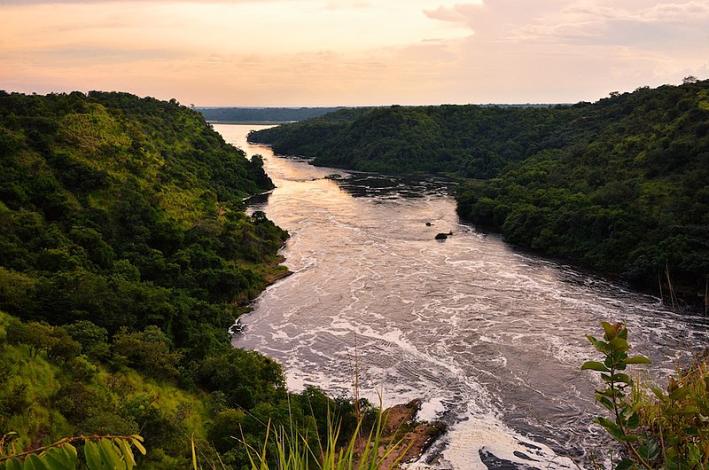
On 22nd February 1999, in Dar es Salaam, Tanzania, the Nile Basin riparian states launched their first all-inclusive transitional institutional arrangement that was to succeed the then existing cooperation mechanism known as TECCONILE. Later in May of the same year, in Addis Ababa, the riparian states through their Council of Ministers of Water Affairs (Nile-COM) endorsed the name ‘Nile Basin Initiative‘ for the new transitional institutional arrangement.
The establishment of the NBI was a result of many intersecting processes within and outside the basin: prior cooperation among some Nile riparian states over hydro-meteorological studies going back to the 1960s; a renewed focus on challenges facing the basin towards the end of the 20th Century; and a post-Cold War international development environment that was supportive of regional integration efforts to strengthen peace and security and provide foundations for social development and economic growth.
Driven by Nile countries themselves, the establishment of the Initiative in 1999 marked the first time a truly comprehensive mechanism of cooperation had been agreed to among riparians. The NBI was launched as a ‘transitional’ arrangement up until ‘…a final Framework for Cooperation is put in place’, i.e. the Nile Basin Cooperative Framework Agreement (CFA) that would provide a permanent legal and institutional basis for Nile cooperation.
The establishment of the NBI was a result of many intersecting processes within and outside the basin: prior cooperation among some Nile riparian states over hydro-meteorological studies going back to the 1960s; a renewed focus on challenges facing the basin towards the end of the 20th Century; and a post-Cold War international development environment that was supportive of regional integration efforts to strengthen peace and security and provide foundations for social development and economic growth.
Driven by Nile countries themselves, the establishment of the Initiative in 1999 marked the first time a truly comprehensive mechanism of cooperation had been agreed to among riparians. The NBI was launched as a ‘transitional’ arrangement up until ‘…a final Framework for Cooperation is put in place’, i.e. the Nile Basin Cooperative Framework Agreement (CFA) that would provide a permanent legal and institutional basis for Nile cooperation.
The NBI started implementation of the Strategic Action Program in 2003 through a basin-wide Shared Vision Program which comprised 8 projects, and two Subsidiary Action Programs, one for the Eastern Nile and the other for the Nile Equatorial Lakes region. At the end of the first Strategic Action Program, in 2012, as part of the Institutional Strengthening Project executed by Nile-SEC, member states agreed on three core functions of the NBI, namely facilitating basin cooperation, water resources management and water resources development.
The three centres are now implementing their joint 10-Year Strategy (2017 – 2027), which has been structured along six priority areas, namely: water security, energy security, food security, enhancing environmental sustainability, climate change adaptation and strengthening transboundary water governance.
| Year | Milestone |
| 1992 | TECCONILE launched Nile-COM established |
| 1998 | First meeting of the Nile-TAC |
| 1999 | NBI established on February, 22 NBI Secretariat launched |
| 2000 | Strategic Action Program approved ENSAP Secretariat (later ENTRO) launched |
| 2002 | Final Nile 2002 Conference, Nairobi NELSAP-CU launched Nile Basin Initiative Act passed ENTRO formally established |
| 2003 | Nile Basin Trust Fund established Negotiation of the CFA started |
| 2004 | Shared Vision Programme (SVP) launched |
| 2005 | First set of cooperative investments |
| 2006 | 1st Nile Basin Development Forum held |
| 2007 | Annual Nile Day (February, 22) launched |
| 2008 | Institutional Strengthening Programme (ISP) launched |
| 2010 | CFA opened for signature in Entebbe Egypt and Sudan freeze participation in the NBI |
| 2012 | CIWA formed Sudan unfreezes participation in the NBI South Sudan joins the NBI |
| 2016 | 1st Nile Basin Water Resources Atlas published |
| 2017 | 1st Nile Basin Heads of States Summit, Entebbe NBI 10-Year Strategy launched |
